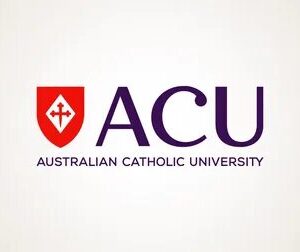
Introduction – Embark on a Rewarding Research Journey
Securing a PhD scholarship feels like stepping onto a thrilling path—a path full of opportunity and promise. But when your destination is a Muslim-majority country, you may face extra questions: Where do I begin? What will the process look like? This guide is your trusted map. It walks you through everything—from preparing your documents to submitting your application—so you can confidently reach that goal.
You’re about to journey through:
- Key eligibility factors and popular destinations
- Application steps that keep things simple and clear
- Common pitfalls—and how to avoid them
- A handy comparison table to make your options shine
Let’s start strong with the first essential stop: understanding which countries and universities are the most accessible—and rewarding—for fully funded PhD scholarships.
1. Overview of Key Destinations and Scholarship Programs
Muslim-majority countries are rich with world-class institutions offering fully funded PhD scholarships. Top destinations include:
- Turkey – Middle East Technical University, Istanbul University
- Malaysia – University of Malaya, Universiti Kebangsaan Malaysia
- United Arab Emirates – Khalifa University, UAE University
- Egypt – Al-Azhar University, Cairo University
Here’s a quick comparison table to guide your selection:
| Country | Notable Universities | Key Scholarship Features |
|---|---|---|
| Turkey | METU, Istanbul Univ. | Tuition waiver, monthly stipend, health insurance |
| Malaysia | University of Malaya, UKM | Full tuition, living allowance, research funding |
| UAE | Khalifa Univ., UAE Univ. | Tuition covered, generous stipend, housing support |
| Egypt | Cairo Univ., Al-Azhar | Waived fees, small stipend, regional focus |
Each country has its own academic culture, language landscape, and research strengths. For example, in Malaysia, many programs are delivered in English and often welcome international students through strong scholarship frameworks. This makes Malaysian PhDs more easily accessible to global talent.
Eligibility Essentials You Must Know
Before applying, ensure you meet these common eligibility criteria found across institutions:
- Academic qualification: A relevant Master’s degree (or equivalent) with strong grades.
- Language proficiency: TOEFL/IELTS scores for programs taught in English. Some countries also require local language tests.
- Research proposal: A well-crafted proposal aligned with university priorities and faculty expertise.
- Relevant experience: Prior research, publications, or internships are often preferred.
- Nationality requirements: Many scholarships target citizens from specific regions or developing nations.
Making progress here is about attention to detail:
- Double-check your university’s postgraduate guidelines for minimum GPA/percentage.
- Prepare your language test well in advance to avoid rush fees and delays.
- Select a topic that resonates with the university’s research angles—this improves fit.
- Tailor your CV so that research experience speaks louder than coursework.
Step-by-Step Application Roadmap
Here’s a clear, step-by-step action plan to follow:
1: Identify Suitable Scholarships
- Visit university websites or national scholarship portals.
- Read eligibility, coverage, and deadlines carefully.
2: Connect with Potential Supervisors
- Draft a concise, professional email including your CV and research idea.
- Explain why their work aligns with your goals and background.
3: Prepare Application Documents
- Academic transcripts: Translate and certify if necessary.
- Research proposal: Brief, compelling, and aligned with supervisor’s interests.
- Letters of recommendation: From academics or supervisors who know your work well.
- Language test report: IELTS, TOEFL, or local language tests.
- CV/resume: Highlight research, publications, and academic achievements.
4: Submit Application
- Use the official online portal, if available, and keep a screenshot of confirmation.
- Provide additional documents like a personal statement describing your motivation and how you’d benefit your target university.
5: Prepare for Interviews (if required)
- Expect questions about your proposal, motivation, and academic fit.
- Practice confidence, clarity, and conciseness; record yourself to refine your delivery.
Insider Tips to Strengthen Your Application
Let’s go beyond the basics—here are tips that can make your application shine:
- Tailor your research proposal to country context: For example, if applying to a university in Egypt working on water resource management, link your topic to regional challenges like the Nile Basin.
- Attend virtual info sessions: Many universities host webinars—join these to ask questions and understand expectations.
- Use academic networks: Platforms like ResearchGate and LinkedIn can help you connect with faculty and current PhD candidates for insights on culture and academics.
- Demonstrate cultural adaptability: Briefly share in your personal statement how your background aligns with their academic culture—this builds trust.
- Proofread thoroughly: Ask a mentor or peer to review your application, especially your proposal.
Each of these touches demonstrates both competence and genuine interest—powerful combinations for scholarship reviewers.
Common Pitfalls and How to Avoid Them
Even the most qualified applicants can stumble if care isn’t taken. Here are common pitfalls—and how to avoid them:
- Submitting generic proposals
Avoid: Proposals that don’t relate to research groups.
Fix: Mention specific faculty, labs, or projects you’d like to join. - Missing deadlines
Avoid: Last-minute submission due to poor planning.
Fix: Set your own deadlines one week ahead to accommodate delays. - Weak recommendation letters
Avoid: Letters that praise generic qualities only.
Fix: Choose referees who can describe your research strengths and potential. - Neglecting formatting and instructions
Avoid: PDFs with wrong naming conventions or missing fields.
Fix: Use templates and re-check guidelines before submission. - Poor interview prep
Avoid: Being unprepared to speak about your project passion or adaptability.
Fix: Do mock interviews; practice summarizing your proposal in under 2 minutes.
Real-World Scholarship Options and Resources
Here, we spotlight a few standout programs and direct you where to learn more:
1. Australia Awards Scholarships in Muslim-Majority Nations
Though not limited to Muslim-majority countries, the Australia Awards offer tuition, airfare, and living allowances. Countries like Indonesia and Malaysia are eligible, offering good options for regional scholars. These high-impact awards provide excellent support. Learn more from the official site here.
2. Turkish Government Scholarships (Türkiye Burslari)
This is a widely-known, fully funded program that covers full tuition, monthly stipend, health insurance, and housing for study in Turkish universities. Scholarships are available for disciplines across sciences, engineering, humanities, and more. More details are available via their official portal.
3. Malaysian Public Scholarship Programs
Programs such as MyBrain15 and Malaysia International Scholarships (MIS) provide full funding for postgraduate study in Malaysia, including many PhD scholarships across top universities.
4. Sultan Qaboos University Scholarships in Oman
Offering PhD scholarships with full sponsorship and opportunities in sectors like environmental science, engineering, and humanities. These are fantastic opportunities thanks to strong research infrastructure and regional influence.
Resource Table: Notable Programs
| Program | Country | Coverage Highlights |
|---|---|---|
| Australia Awards (Asia) | Australia | Full tuition + stipend + travel (e.g., for Malaysia) |
| Turkish Government Scholarships | Turkey | Tuition, stipend, housing, health insurance |
| Malaysia MIS/MyBrain15 | Malaysia | Full funding across many disciplines |
| Sultan Qaboos University | Oman | Tuition & stipend for priority research fields |
Use official university and government scholarship portals for accurate application dates and eligibility criteria.
Cultural and Academic Life: What to Expect
Choosing to pursue your PhD in a Muslim-majority country offers rich cultural experiences in addition to academic growth. You’ll encounter:
- Diverse campus cultures: Many universities offer a multicultural, English-friendly environment with strong international communities.
- Local traditions and academic rhythms: Be prepared for regional holidays or prayer schedules—but most universities are flexible and inclusive.
- Affordable living: Compared to Western campuses, costs in countries like Turkey or Malaysia tend to be lower, making your stipend stretch further.
- Strong research ties: Many programs involve international collaborations—this boosts your global academic network.
This means you’ll gain more than a degree; you’ll gain cultural fluency, regional insight, and a global mindset.
Final Thoughts and Encouragement
Securing a PhD scholarship in a Muslim-majority country is a bold and brilliant venture. With careful planning, thoughtful research, and strong communication, it’s entirely achievable.
Here are your key takeaways:
- Start early, identify programs, and tailor each application thoughtfully.
- Seek help from mentors, peers, and previous scholars. Don’t go it alone.
- Be adaptive, respectful, and culturally curious—these traits matter in academia and life.
Your mission? Use this guide to build momentum and clarity. Your destination? A PhD journey that enriches your knowledge, broadens your horizons, and equips you for global impact.
Conclusion – Your Next Steps
You have all the building blocks now:
- Lists of top countries and universities
- A step-by-step roadmap to follow
- Tips to go beyond basics and shine
- A comparison table and FAQs to keep you on track
- Real-world programs to explore
- Cultural insights to ground your journey
This is your foundation for action. Now it’s time to bring your unique story forward, craft your path, and seize that PhD scholarship opportunity.
If you’d like help drafting personal statements, researching supervisors, or building your application timeline—just say the word. I’m here to help you succeed.
FAQs
1. What are the most popular Muslim-majority countries offering PhD scholarships?
Countries like Saudi Arabia, Malaysia, Turkey, Qatar, and the United Arab Emirates offer fully funded PhD scholarships for international students.
2. Do I need to speak Arabic to apply for a PhD scholarship in Muslim-majority countries?
Not always. Many universities in these countries offer PhD programs in English, especially in science, engineering, and business fields.
3. Are PhD scholarships in Muslim-majority countries open to non-Muslim students?
Yes. While some scholarships prioritize Muslim applicants, many are open to students of all faiths based on academic merit.
4. What documents are usually required when applying for a PhD scholarship in these countries?
Common requirements include academic transcripts, a research proposal, recommendation letters, proof of language proficiency, and a valid passport.
5. How competitive are PhD scholarships in Muslim-majority countries?
Competition varies. Prestigious scholarships in top universities are competitive, but niche or research-specific programs may have fewer applicants.
6. Can I work part-time while studying on a PhD scholarship in Muslim-majority countries?
It depends on the country’s visa rules. Some, like Malaysia, allow limited part-time work; others may have stricter restrictions.






